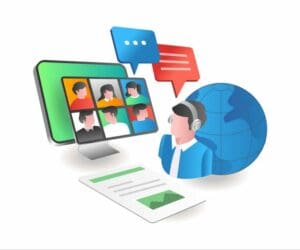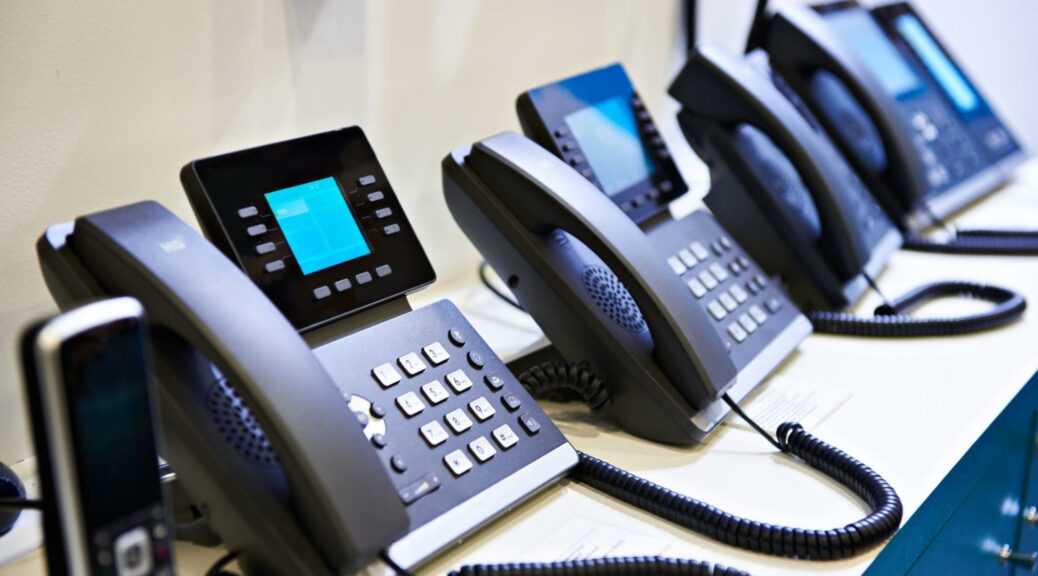What has started as an extenuating circumstance to make sure people stay safe during the pandemic, remote work has now evolved into a new normal for many companies and occasionally a perk for working professionals. It has completely changed how teams and stakeholders collaborate, with virtual meetings and offsite communication becoming more prevalent than in-person meetings.
Businesses are looking for technologies that keep all stakeholders connected and maintain the same workflow despite the lack of proximity. The traditional phone and communication systems are simply not a fit anymore; onsite phone lines are futile when most employees are work remotely. VoIP bridges the gaps between team members, clients and partners to maintain the same level of collaboration and productivity in what is now a decentralized office environment in most organizations.

 With VoIP essentially allowing communication over the Internet, there comes an inevitable risk of security compromises and data breaches. It is a growing concern that raises considerable apprehension as security failures have become omnipresent and result in millions of dollars in lost revenue and clients.
VoIP providers such as Unite are powered by redundant and elaborate failover protocols that harden your company’s IP telephony system. Such security practices entail call encryption, setting up a Virtual Private Network (VPN) for remote staff, regular system updates and enforcing strong password policies.
With VoIP essentially allowing communication over the Internet, there comes an inevitable risk of security compromises and data breaches. It is a growing concern that raises considerable apprehension as security failures have become omnipresent and result in millions of dollars in lost revenue and clients.
VoIP providers such as Unite are powered by redundant and elaborate failover protocols that harden your company’s IP telephony system. Such security practices entail call encryption, setting up a Virtual Private Network (VPN) for remote staff, regular system updates and enforcing strong password policies.

VoIP Systems Are More Versatile Than Traditional Systems
VoIP removes the silos that can quickly build as a result of team members working from home. Coworkers may not be nearby in the next cubicle or office down the hall, but VoIP creates a network where everyone is still connected, still collaborating and still genuinely working together, even if they are not physically in the same space. VoIP systems can be routed to any device that professionals are working from: computers, laptops, tablets or phones. The setup is instant and easily adaptable–if anything, there is no setup at all as it requires minimal configuration that anyone can do, or with the help of providers like Unite Communications who offer 24/7 support. VoIP also offers up-to-the-minute data about each call completed, providing managers with transparency on the level of productivity and the work completed. With productivity tracking in remote work being a lingering concern for managers, VoIP easily provides that level of transparency. VoIP Features Enhance Flexibility The appeal of remote work comes in its flexibility, and VoIP further enhances that better than most technologies. Wherever you are, whatever your device is and even how you want to take calls, VoIP offers incredible flexibility to match your needs. It has all the features –that are actually not available in traditional communication technologies–to improve connectivity. Some of these features are:- Call Hunting Route calls to preset locations sequentially when you’re not initially reachable.
- Call Schedule Route calls based on time of the day or day of the week.
- Call Transfer Instantly route a call internally in the company or externally.
- Web Portal Access a dashboard to review messages and see recent caller details.
Optimum Customer Service
VoIP can be integrated to any customer relationship management (CRM) system to offer a superior customer service experience. When there is a single repository of customer information that is not scattered across different platforms, your team is better equipped to provide quick and personalized customer service. The integration of VoIP and your CRM system provides a 360 view of the customer with every incoming call. Employees will have far more context to serve the customer better, with seamless ability to access customers’ needs, call history, subscription status, and more metrics even before taking the call. It also saves companies the costs of human errors that are highly prone when systems are isolated, such as dialling the wrong number and losing customer information.Better Security and Lower Risk
 With VoIP essentially allowing communication over the Internet, there comes an inevitable risk of security compromises and data breaches. It is a growing concern that raises considerable apprehension as security failures have become omnipresent and result in millions of dollars in lost revenue and clients.
VoIP providers such as Unite are powered by redundant and elaborate failover protocols that harden your company’s IP telephony system. Such security practices entail call encryption, setting up a Virtual Private Network (VPN) for remote staff, regular system updates and enforcing strong password policies.
With VoIP essentially allowing communication over the Internet, there comes an inevitable risk of security compromises and data breaches. It is a growing concern that raises considerable apprehension as security failures have become omnipresent and result in millions of dollars in lost revenue and clients.
VoIP providers such as Unite are powered by redundant and elaborate failover protocols that harden your company’s IP telephony system. Such security practices entail call encryption, setting up a Virtual Private Network (VPN) for remote staff, regular system updates and enforcing strong password policies.






